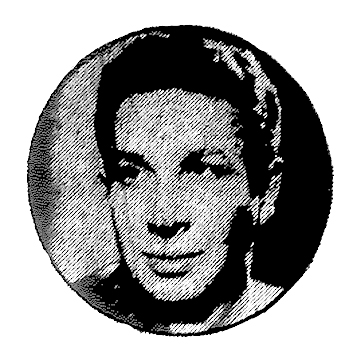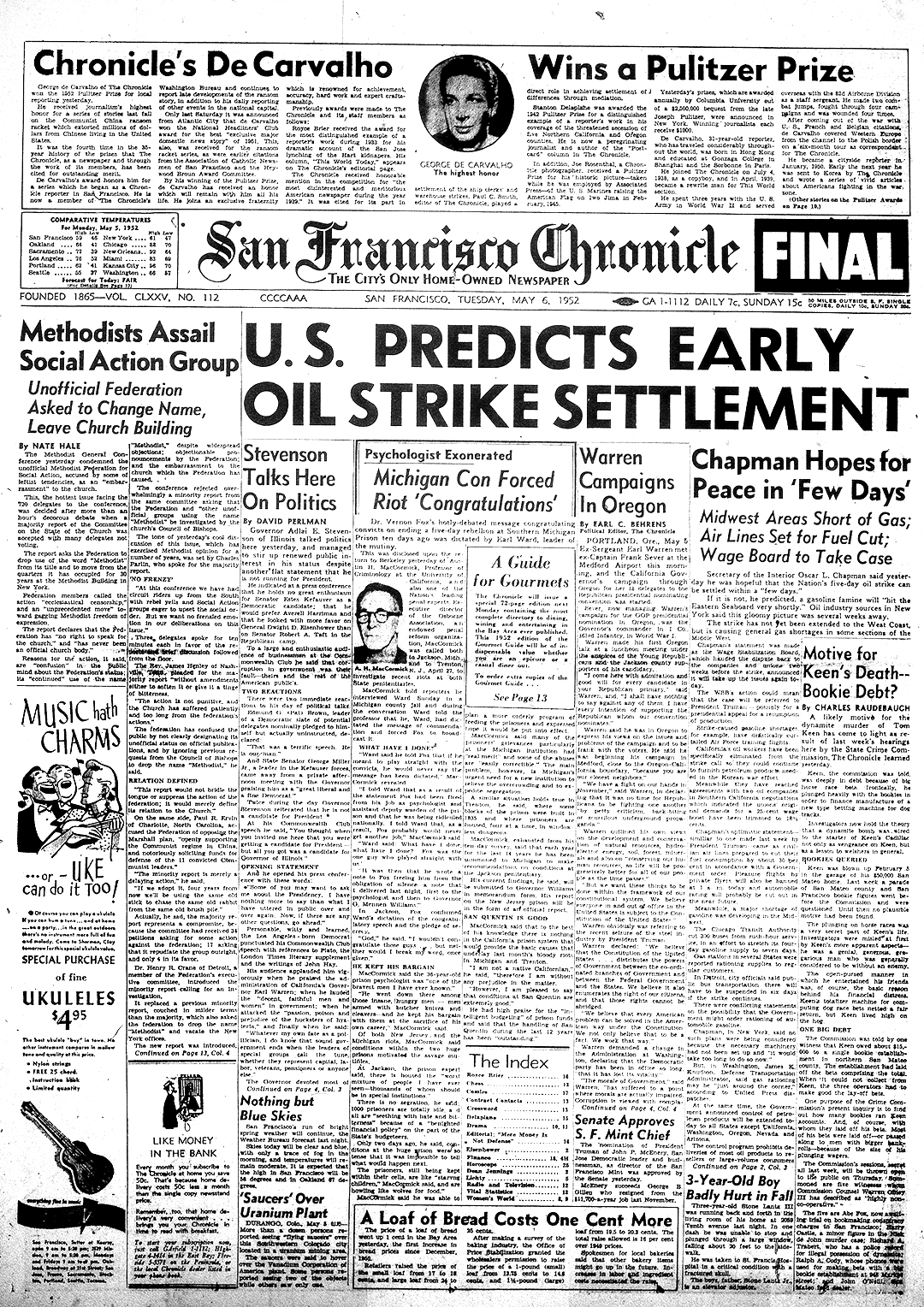Veronica Miracle relocates to the Bay Area to become a San Francisco-based correspondent for CNN. She leaves KABC-TV ABC7 in Los Angeles, where she served as a weekend anchor and reporter.
Former KRON 4 executive producer Chris Archer joins Atlanta-based Gray Television as the company’s new vice president of research and consulting. He has held a similar position with SmithGeiger for the last 12 years.
Meteorologist Mike Nicco leaves KGO-TV ABC7 in San Francisco for a new position as chief meteorologist at KSHB in Kansas City. Nicco joined KGO-TV in 2007. It’s a return to the Midwest for him; Nicco was born in Kansas and raised in Missouri.
Nathalie Vera joins KSTS Univision 48 and KNTV NBC Bay Area in San Jose as a bilingual news reporter. She leaves KSEE 24 in Fresno.
Stephen Stock, senior investigative reporter at KNTV NBC Bay Area and one of the inaugural investigative reporters to comprise the station’s award-winning Investigative Unit when it was formed in 2012, is joining CBS News for its new local news innovation lab, Stock will be based in Dallas-Fort Worth. He was among four nationally recognized investigative journalists hired by CBS News for the lab.
Lisa White is promoted to vice president of news at KPIX in San Francisco. She has served as the station’s assistant news director for the last 22 years. Prior to joining KPIX in 2000, White spent 10 years as assistant news director at KRON in San Francisco.
Claudette Stefanian joins KTXL in Sacramento as a reporter. Previously, she was a news anchor at KFI-AM in Los Angeles and a reporter at KNSD, the NBC-owned station in San Diego.
Jim Parker, digital content director at KVIA in El Paso, Texas, returns to Northern California as news director of KIEM-TV and KVIQ, the NBC and CBS duopoly in Eureka. He will also oversee news operations at KMVU, the Fox affiliate in Medford, Oregon. Parker previously worked at KPIX 5 in San Francisco. He has also joined the Board of Governors of the San Francisco/Northern California Chapter of The National Academy of Television Arts & Sciences.
Debora Villalon, a veteran Bay Area TV reporter and anchor, retired in December after 35 years in Bay Area television. She spent the last decade at KTVU Fox 2 in Oakland. Prior to joining there, she was a reporter and anchor at KGO-TV ABC7 in San Francisco. Congratulations, Deb!
Laura Anthony retired from Bay Area television news after more than 30 years in the industry. The veteran TV reporter worked for KGO-TV ABC7 for 20 years. Prior to that, she was with KRON 4 in San Francisco and KCRA 3 in Sacramento. Congratulations, Laura!
Ariel Schroeder, news producer at KNTV NBC Bay Area in San Jose, has been promoted to executive producer of the station’s weekday morning “Today in the Bay”.
Anthony Leong, news producer at KNTV NBC Bay Area in San Jose, has been promoted to executive producer of digital content. He will continue to produce the station’s 11 a.m. weekday newscast.
Nataly Gutierrez joins KSTS Telemundo 48 in San Jose as assignment editor.
A veteran KPIX 5 reporter-photographer was the victim of an armed robbery in early March while covering a story about car break-ins in San Francisco, according to San Francisco police. Don Ford, a 20-year KPIX news veteran who previously worked at KRON for 20 years, was in San Francisco’s Twin Peaks neighborhood at the time of his harrowing encounter with his assailants, preparing to interview residents for their reaction to a series of auto thefts there. That is when four men drove up in a white luxury sedan. Three of them jumped out, with one of them holding a gun to Ford’s face at point-blank range and demanding his TV camera. Ford willingly gave up the camera. No one was injured.
Joshua Padilla, news promotions producer at KNTV NBC Bay Area in San Jose, joins KING-TV in Seattle, in the same capacity.
David Gonzalez, weather anchor at KSTS Telemundo 48 in San Jose, joins KMEX Univision 34 in Los Angeles, in the same capacity.
Ivan Ramirez, assignment editor at KSTS Telemundo 48 in San Jose, joins KVEA Telemundo 52 in Los Angeles, in the same capacity.
Cecilia Vega, an ABC News reporter and former reporter for the SF Examiner, SF Chronicle and KGO-TV, has been named the network’s chief White House correspondent. The announcement came the day before Joe Biden was sworn in as president. On Twitter she said, “I may be the first Latina for an English language network to hold this title, but mark my words, I wont be the last.” ABC News | Deadline
♦
The thinning slice of local coverage provided by the Gannett-owned Stockton Record is frustrating readers and creating a news void that online sites are trying to fill. But there’s worry that fairness sometimes takes a back seat.
♦
The San Francisco Chronicle has dropped former mayor and former Assembly speaker Willie Brown‘s weekly column, according to Politico’s California Playbook. Brown was told the paper was “going digital,” Politico said, although the connection to his column wasn’t explained.
♦
Marshall Kilduff, an editorial writer for the San Francisco Chronicle, has announced his retirement after 40 years at the paper. In earlier roles at the Chronicle he covered courts, police, education, City Hall and urban affairs. He is co-author of a book on the Peoples Temple called “Suicide Cult.” Note: possible paywall.
♦
Susan Slusser, the San Francisco Chronicle’s primary writer on the Oakland A’s baseball beat since 1999, will now cover the San Francisco Giants, replacing the retiring Henry Schulman. The A’s beat will be handled by Chronicle staffer Matt Kawahara.
♦
Peter Bhatia, a onetime editor at the Hearst-owned San Francisco Examiner and now editor and vice president at the Detroit Free Press, has won the 2020 Benjamin C. Bradlee Editor of the Year Award from the National Press Foundation, both for the paper’s coverage and commitment to diversity.
♦
The San Francisco Examiner and SF Weekly newspapers have been purchased by Clint Reilly Communications. Reilly, a publisher, real estate investor and political consultant, had sued to prevent the 2000 merger of the Examiner and SF Chronicle. SF Examiner | SF Chronicle
♦
People who participated in a Poynter Institute “MediaWise for Seniors” literacy training were far better able to spot news disinformation than those who didn’t, a Stanford study concludes.
♦
The nonprofit service organization Report for America has placed reporters in California newsrooms, including CapRadio and the Sacramento Observer in Sacramento, Lookout Santa Cruz, San Jose Spotlight, CalMatters and The Oaklandside. The group pays half the salaries, with the balance coming from the news organizations and local supporters.
♦
A local investment group that rescued a Half Moon Bay newspaper liked the deal so much that they purchased another paper in Pacifica. Combined the papers make up the Coastside News Group.
♦
A cost-saving offer of buyouts to San Francisco Chronicle staffers has attracted 20 to 24 takers, some of them prominent figures in journalism, according to Carla Marinucci in Politico’s California Playbook. See the “Media Matters” section in this installment and more names in this one.
♦
David Snyder, executive director of the First Amendment Coalition, has received the Freedom of Information award from the Los Angeles chapter of the Society of Professional Journalists. The award will be presented virtually on Dec. 2. The Coalition, based in San Rafael, focuses on protecting free speech, free press, open government and public participation in civic affairs.
♦
Amanda Su, a graduate of Dougherty Valley High School in San Ramon, has been named the next president of the Harvard Crimson, the university’s daily student newspaper. In high school, she was selected “student editor of the year” by writing coaches at the nonprofit CC Spin newspaper in Contra Costa County.
♦

 In addition, Joe Rosenthal, a Chronicle photographer, received a Pulitzer Prize for his historic picture — taken while he was employed by Associated Press — of the U.S. Marines raising the American flag on Iwo Jima in February, 1945.
In addition, Joe Rosenthal, a Chronicle photographer, received a Pulitzer Prize for his historic picture — taken while he was employed by Associated Press — of the U.S. Marines raising the American flag on Iwo Jima in February, 1945.